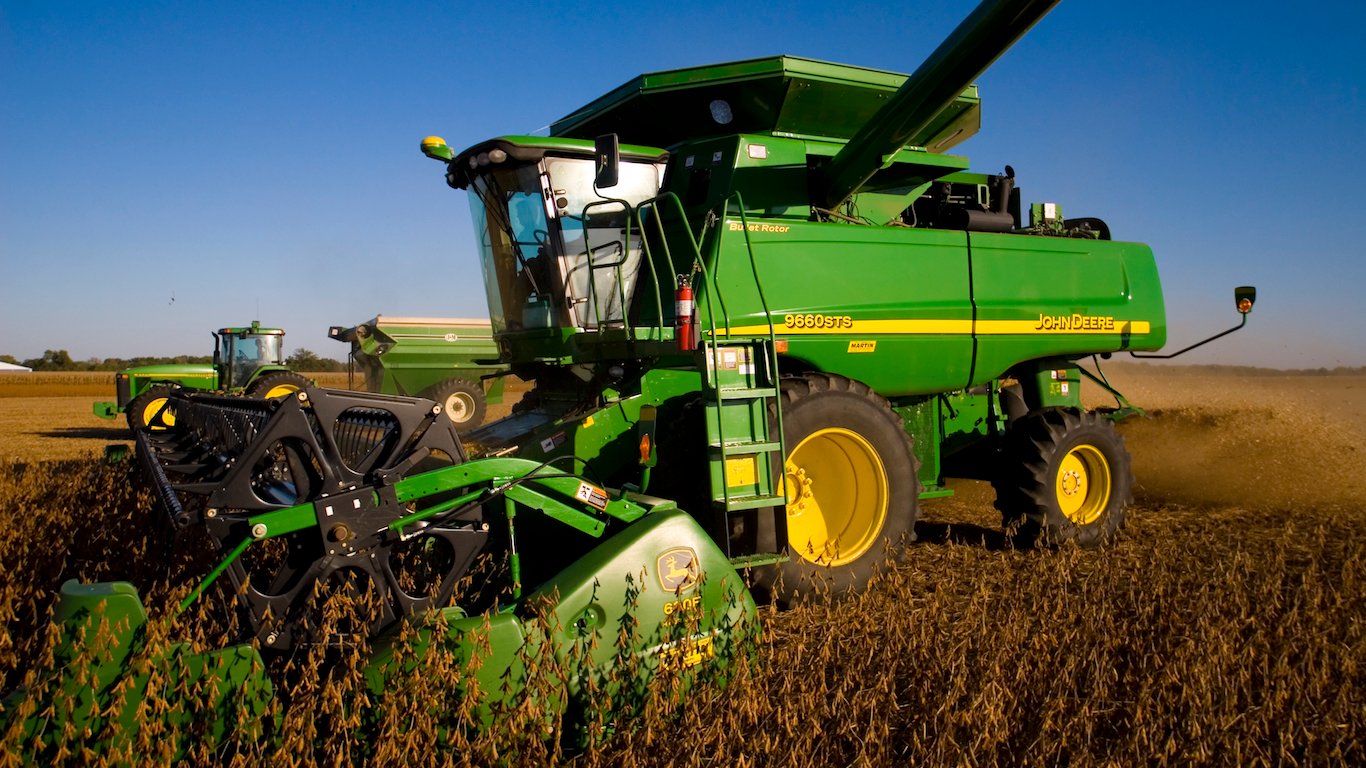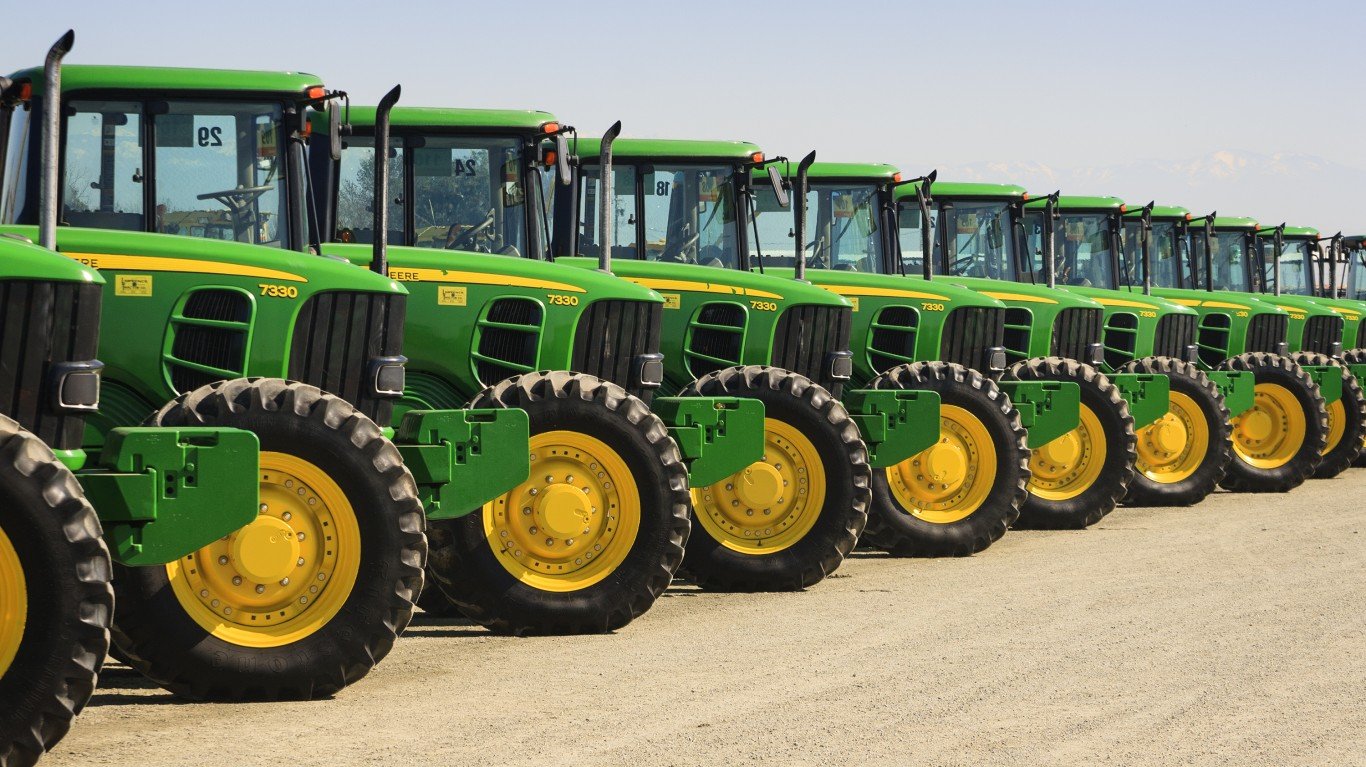

Deere & Co. (NYSE: DE) reported fiscal second-quarter 2018 results before markets opened Friday. The farm and heavy equipment maker posted diluted earnings per share (EPS) of $3.52 on revenues of $11.34 billion. In the same period a year ago, the company reported EPS of $3.67 on revenues of $10.72 billion. Second-quarter results compare to consensus estimates for EPS of $3.61 and $10.18 billion in revenues.
Net income in the quarter totaled $1.14 billion, compared with net income of $1.21 billion in the year-ago quarter. Excluding favorable effects related to changes in U.S. tax law, second-quarter 2018 adjusted EPS totaled $3.14 on net income of $1.03 billion. For the full fiscal year, the company’s net unfavorable provisional tax expense came to $704 million.
All this is yesterday’s news, however. What investors want most to know is what effect the U.S.-China trade war will have on future sales. Including sales at Wirtgen (acquired in December 2017), Deere now forecasts equipment sales up 5% year over year in 2019. That’s down from a prior forecast of a 7% improvement. For the first half of its 2019 fiscal year, equipment sales total l$17.21 billion compared with equipment sales of $15.72 billion (including Wirtgen sales).
Currency exchange effects, originally forecast to snip 2% off equipment sales are now forecast to reduce revenues by 3%. Net sales also were originally forecast to rise by 7% and that estimate, too, has been reduced to 5%. The forecast for net income has dropped from $3.6 billion to $3.3 billion.
For the full fiscal year, analysts had forecast EPS of $11.14 on sales of $35.68 billion, equal to Deere’s prior estimate for 7% sales growth. The company did not provide a forecast for its third fiscal quarter, but analysts are looking for EPS of $3.25 and sales of $9.7 billion.
CEO Samuel R. Allen commented:
Ongoing concerns about export-market access, near-term demand for commodities such as soybeans, and a delayed planting season in much of North America are causing farmers to become much more cautious about making major purchases. At the same time, overall economic conditions remain positive, a fact that along with a growing customer base has contributed to strong results from our construction and forestry business.
Even though Deere scaled back its projections for the current fiscal year, the company is clearly skittish about the second half of the year in North America. U.S. farmers are suffering from the trade war with China, and even if the federal government pays some compensation for the lost sales, farmers won’t be spending the money on new tractors.
Shares of Deere traded down about 2.7% at $142.00 in Friday’s premarket. The stock’s 52-week range is $128.32 to $169.99. The consensus 12-month price target was $174.83 before the report, and the high target was $209.00.
Essential Tips for Investing: Sponsored
A financial advisor can help you understand the advantages and disadvantages of investment properties. Finding a qualified financial advisor doesn’t have to be hard. SmartAsset’s free tool matches you with up to three financial advisors who serve your area, and you can interview your advisor matches at no cost to decide which one is right for you. If you’re ready to find an advisor who can help you achieve your financial goals, get started now.
Investing in real estate can diversify your portfolio. But expanding your horizons may add additional costs. If you’re an investor looking to minimize expenses, consider checking out online brokerages. They often offer low investment fees, helping you maximize your profit.
Thank you for reading! Have some feedback for us?
Contact the 24/7 Wall St. editorial team.



